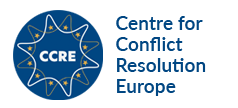Healing Workplaces: The Impact of Work Conflict Mediation
Workplaces, being melting pots of diverse personalities, skill sets, and perspectives, are fertile grounds for conflict. While these differences...

“Each group member rates how they and their friends / colleagues treat each other on a scale of 1 to 5, with a 1 being as kind and wonderful as possible and a 5 as awful, mean and cruel. They are asked to cite any significant acts of civility, kindness or compassion they have observed within the group. They are asked to cite any acts of meanness and any concerns they have about questionable things, related to the group, they have seen in cyberspace. The reports are automatically compiled and can be reviewed for information and for discussion items.
The most successful groups use the Civility / Kindness / Compassion surveys on a regular schedule, i.e., every 4-8 weeks. The survey takes less than 5 minutes to complete but will generate a great deal of information. The use of the surveys reminds participants that they are responsible for their environment and how they treat and relate to each other.
The anonymous nature of the instrument and its purposeful design to foster reporting on good things helps groups to redirect their collective efforts toward civility, kindness and compassion.”
Dr John Robert Curtin—4Civility Institute / Creator of the Kindness Survey

The Centre’s goal is to help you resolve actual or potential conflicts. CCRE programmes, training and services can provide crucial support for reducing the risks of conflict and litigation. To this end, the Centre is committed to equipping individuals, groups, and organisations to successfully address and resolve various forms of conflict.
Whatever the outcome of the process of resolving a particular conflict, the Centre believes the results for all parties can consistently include satisfaction with the process and an appreciation for training as well as utilising individuals who serve as neutrals to help individuals, groups and organisations address their particular circumstances and needs.
Workplaces, being melting pots of diverse personalities, skill sets, and perspectives, are fertile grounds for conflict. While these differences...
Family, a place of love, care, and belonging, can sometimes become a battleground for conflicts. Misunderstandings, differences in beliefs,...
Conflict, in one form or another, is an inevitable part of our lives. Whether it's a disagreement with a...

Copyright © 2023. CCR Europe. All rights reserved.